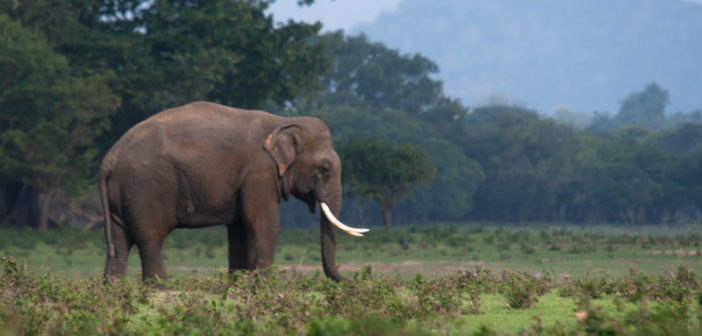The Environmental Investigation Agency (EIA) today welcomes the United Kingdom (UK) Government’s ban of ivory sales, shutting down one of the world’s largest legal domestic ivory markets.
Along with nine partner organisations, we are delighted that the Ivory Bill received Royal Assent today and has now become law, meaning that in the future most ivory sales in, to and from the UK will be treated as criminal offences.
Mary Rice, Executive Director of the London-based EIA, said: “Following on the heels of China’s closure of its own domestic ivory market at the start of the year, this is the best Christmas present the UK could have given the world’s threatened elephant populations in Africa and Asia. The Ivory Bill becoming law is an important move that recognizes the need to take firm action to protect elephant populations from poaching and ivory trafficking. After years of sustained campaigning, EIA welcomes the news and hopes that countries which still have legal domestic ivory markets will see this as the standard to aspire to.”
In January 2016, EIA led 26 organisations to petition the UK Government to close its domestic ivory market.
Its ground-breaking 2017 trade study revealed the UK to be the biggest legal importer of ivory in the world – and the largest exporter of legal ivory to the trafficking hotspots of Hong Kong and China. Between 2010-15, the UK exported more legal ivory than any other country, underlining the significant role it plays in the international ivory trade.

Photos from London’s 2013 International March for Elephants. Public outcry like this is part of what led to the UK’s Ivory Act. Image credit Andy Morffew, CC BY-SA 3.0.
The Government’s subsequent public consultation on a proposed ivory ban resulted in one of the largest-ever responses. More than 70,000 people and organisations participated, with more than 88 percent in favor of a ban. The UK’s new Ivory Act is one of the strongest ivory bans in the world and covers the vast majority of items in trade, subject to certain narrow exemptions.
Rice added: “Now that the legislation is in place, we strongly urge the UK Government to provide the necessary resources for its proper implementation and enforcement.
“Wherever legal domestic ivory markets may be, the evidence clearly shows they provide easy opportunities for the laundering of illegal ivory and also sustain demand for ivory among consumers.
“With the UK ban now in place, we urge the European Union and Japan – two of the biggest remaining legal markets for ivory – to put their own houses in order and outlaw all domestic ivory sales.”
Featured image: A wild elephant, seen in Sri Lanka. Image credit Dhammika Heenpella, CC BY-SA 3.0.





